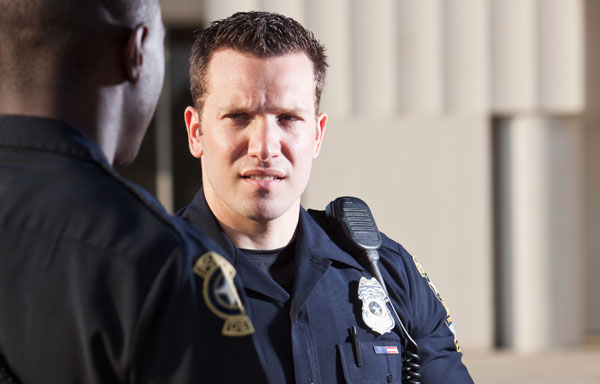Training Until The Lights Go Out
In every training class, we see varying levels of abilities. Some folks are able to grasp the concepts of defensive tactics, vehicle operations or firearms immediately while others require additional assistance, guidance and instruction. Likewise, a constitutional law class may cause some students to pull their hair out while others are fascinated and motivated to excel. While these differences are generally obvious and expected during the initial training and certification classes to be a LEO, I have found that this gap increases with advanced classes. So, what does a law enforcement trainer do with this challenge? What are your obligations as a trainer? What is your liability? This is a common topic of conversation when I meet with fellow trainers.
Training, in any context, is different from a formal education process. For instance, in a college course, the professors present the material to every member of the class and test the students with the same evaluation tool commonly known as an exam. The goal in this environment is to place the burden on the student to study, memorize and learn to apply the material in a single testing event. For example, the student who is able to pull an “all-nighter”, achieve an “A” on the final exam and move on to the next semester may be a top performer in college. However, one week after the exam, he may not retain any of the knowledge imparted during that semester. In the college setting, this is generally fine as he achieved success on the single evaluation event. Nothing could be further from the truth in the training context. This is especially true in law enforcement training.
Training is very different from formal education. Webster’s Online Dictionary defines training as, “to form by instruction, discipline, or drill; to teach so as to make fit, qualified, or proficient.” The essential difference between formal education and training is the end goal. While college professors probably want students to retain the knowledge they impart and evaluate through exams beyond the end of the semester, there is a definite beginning and end to the college class and evaluation. Such is not the case with law enforcement training. As the definition above states, you are forming skills in your students toward goals of proficiency.
So what is the measure of proficiency for law enforcement training? While some classes have a written or skills exam at the end of the training period, that should never be the end goal of the process. No one who takes or teaches an Advanced Firearms or Patrol Rifle class believes that the student’s proficiency is no longer an issue when we are able to write a qualifying score on the roster! The proficiency goal of the class is to make the student better able to survive and protect the public. The same is true of every class in law enforcement. Each new skill puts another arrow into the quiver of the LEO to help ensure survival and effectiveness in the sworn duties we undertake.
As a trainer, you signed on for the obligation to work hard to impart skills to every student. You agreed to be patient with the remedial student and take the proficient student to the next level. For many, the former is far less enjoyable. However, this is the role of the law enforcement trainer.
Consider this thought when you begin each training class as I have done as a law enforcement trainer for over 20 years. “The least talented student in this class who needs the most coaching and patience from me may very well be the LEO who arrives to protect the life of my wife, my friends or myself. I need to do whatever is necessary to get them to the next level.” While we cannot compromise training standards and may need to fail students who cannot meet those standards, we should always have a plan to get them through another session in a continued effort to raise their level of proficiency. Think of it this way: look at all of the people in society who choose not to participate in the efforts of LEOs to keep our streets safer and improve the quality of life of strangers. Every person in a law enforcement training class stepped up and asked to serve. As trainers, we owe them our best efforts every day in every class. If they fail, let it be due to a lack of effort on their part. Law enforcement trainers never give up on students.
Any trainer who has met with a former student who used the skills he taught to return home at the end of a shift knows what an incredible honor and obligation you carry as a law enforcement trainer. In the early 1990s, a recruit I trained used deadly force to save himself and one of my best friends. While there may not be any awards or honors for being a law enforcement trainer, you prove your effectiveness every day when your students come home. No plaque on the wall will mean more and the true trainer needs no further recognition. It’s not a matter of IF . . . it’s a matter of WHEN your badge will be threatened. Join your local Firefighter’s Union or the Fraternal Order of Police and the FOP Legal Defense Plan! Call our office to join up today. 770-644-2378
Disclaimer: Unless associated with a lawsuit available for public review, these stories are adaptations and amalgamations from actual cases. Facts have been changed to prevent any to association with any client.

